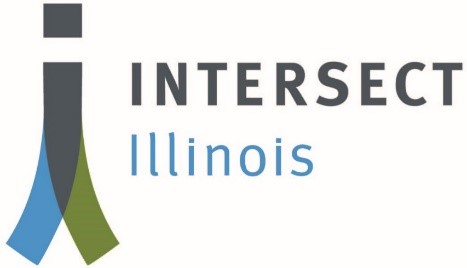On Wednesday, July 28, a bipartisan group of Senators, along with the White House, announced an infrastructure agreement. That evening, the Senate then voted to invoke cloture on the motion to proceed with consideration of the agreement by a vote of 67-32.
Every Senate Democrat voted in favor of the motion, in addition to 17 Republicans. The Republicans voting yes were:
Sens. Roy Blunt (MO), Richard Burr (NC), Shelley Moore Capito (WV), Bill Cassidy (LA), Susan Collins (ME), Kevin Cramer (ND), Mike Crapo (ID), Lindsey Graham (SC), Chuck Grassley (IA), John Hoeven (ND), Mitch McConnell (KY), Lisa Murkowski (AK), Rob Portman (OH), Jim Risch (ID), Mitt Romney (UT), Thom Tillis (NC) and Todd Young (IN).
As of July 29, Senators have not yet released legislative text of the infrastructure deal. However, lawmakers and the White House began circulating top-level outlines Wednesday evening. A copy of the Senate outline may be found here. These outlines indicate the following:
$550 Billion in New Spending
- $110 billion for roads, bridges, and other major projects
- The agreement includes legislative text pulled from infrastructure deals passed by the Senate Commerce and Environment & Public Works Committees
- Funds new, dedicated grant programs to replace and repair bridges
- $66 billion for passenger and freight rail
- Includes funding dedicated to freight rail safety improvements
- $39.2 billion for public transit
- Funds nationwide transit system repair backlogs
- $65 billion for broadband
- Includes grants to states specifically for broadband deployment and affordability
- Expands eligible private activity bond projects to include broadband infrastructure
- $17.3 billion for ports and waterways
- Funding for waterway and coastal infrastructure to channel through the Army Corps of Engineers, the Department of Transportation (DOT), the Coast Guard, the Government Services Administration (GSA), and the Department of Homeland Security (DHS)
- $25 billion for airports
- Establishes a new Airport Terminal Improvement program
- Funding for Air Traffic Control infrastructure
- $55 billion for water infrastructure
- $23.4 billion specifically for the Drinking Water and Wastewater Infrastructure Act which passed the Senate in April 2021 by a vote of 89-2
- Provides funding dedicated to nationwide remediation of lead pipes within drinking water infrastructure
- $73 billion for power and grid improvements
- Includes the Energy Infrastructure Act passed by the Senate Energy Committee earlier in July 2021
- Funds projects contributing to: reliability and resiliency; critical minerals and supply chains for clean energy technology; energy technologies like carbon capture, hydrogen, direct air capture; and energy efficiency
- Includes the 48C tax credit
- Available as a 30 percent investment tax credit to manufacturers and other industrial users to retool, expand, or build new facilities that make or recycle energy-related products or to reduce their process-related greenhouse gas emissions
- $46 billion for resiliency measures
- Includes funding for cybersecurity of critical infrastructure
- Funds grants dedicated to addressing: waste management, flood mitigation, wildfire, drought, coastal resiliency, ecosystem restoration, and weatherization
- $7.5 billion for low-carbon and zero-emission transportation infrastructure
- Increases funding for grant programs designed to deploy electric vehicle (EV), hydrogen fueling infrastructure, propane fueling infrastructure, and natural gas fueling infrastructure
- Includes a state formula program for EV charging infrastructure
- EV charging infrastructure was cut by roughly half since the infrastructure framework announced in June 2021
- $7.5 billion for low-carbon school buses and ferries
- Funds production and procurement of EV and low carbon school buses and ferries
- Allocated funding is intended specifically for school buses as opposed to transit or airport systems
Funding Sources for New Spending
- $205 billion in repurposed COVID-19 relief funds
- $50 billion from recouping fraudulently paid federal unemployment benefits
- $53 billion from states returning unused enhanced federal unemployment supplement
- $20 billion from sales of future spectrum auctions
- $67 billion from the proceeds of the February 2021 c-band auction
- $49 billion from delaying the Medicare Part D rebate rule
- $56 billion in economic growth resulting from a 33 percent return on investment in long-term infrastructure projects
- $28 billion from applying information reporting requirements to cryptocurrency
- $21 billion from extending fees on Government-Sponsored Enterprises (GSEs)
- $13 billion from reinstating certain Superfund fees
- $8.7 billion from the mandatory sequester
- $6 billion from extending customs user fees
- $6 billion in sales from the Strategic Petroleum Reserve
- $3 billion in savings from reducing Medicare spending on discarded medications from large, single-use drug vials
- $2.9 billion from extending available interest rate smoothing options for defined benefit pension plans
What’s Next
The bipartisan infrastructure deal still faces considerable procedural and political hurdles.
Senate leadership must reach an agreement on the amendment process. Following what could be several days of amendment debate, the Senate may conduct a full vote to pass the infrastructure deal out of the chamber and on to the House of Representatives.
Speaker Pelosi has repeatedly stated that the House will not take up consideration of the bipartisan infrastructure deal until Senate Democrats pass a budget reconciliation measure, which would include a wide range of Democratic priorities and is currently estimated at $3.5 trillion. Senate Democrats need all 50 members of their caucus in agreement for the reconciliation package to pass.






